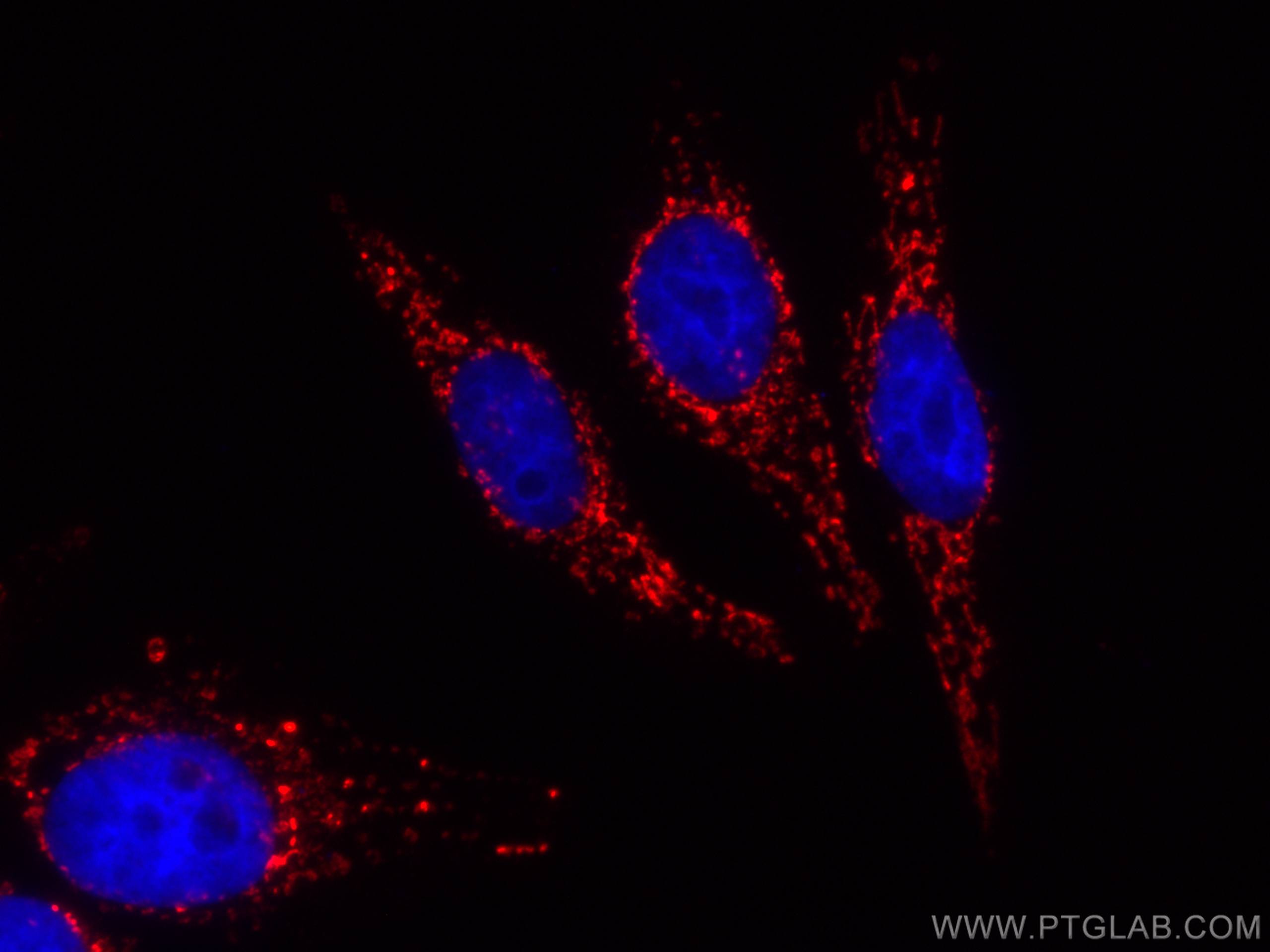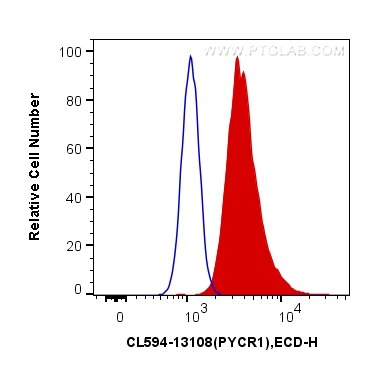Tested Applications
| Positive IF/ICC detected in | HepG2 cells |
| Positive FC (Intra) detected in | HepG2 cells |
Recommended dilution
| Application | Dilution |
|---|---|
| Immunofluorescence (IF)/ICC | IF/ICC : 1:50-1:500 |
| Flow Cytometry (FC) (INTRA) | FC (INTRA) : 0.40 ug per 10^6 cells in a 100 µl suspension |
| It is recommended that this reagent should be titrated in each testing system to obtain optimal results. | |
| Sample-dependent, Check data in validation data gallery. | |
Product Information
CL594-13108 targets PYCR1 in IF/ICC, FC (Intra) applications and shows reactivity with human, mouse, rat samples.
| Tested Reactivity | human, mouse, rat |
| Host / Isotype | Rabbit / IgG |
| Class | Polyclonal |
| Type | Antibody |
| Immunogen |
CatNo: Ag3764 Product name: Recombinant human PYCR1 protein Source: e coli.-derived, PGEX-4T Tag: GST Domain: 1-171 aa of BC022244 Sequence: MEQLLSSVGFCTEVEEDLIDAVTGLSGSGPAYAFTALDALADGGVKMGLPRRLAVRLGAQALLGAAKMLLHSEQHPGQLKDNVSSPGGATIHALHVLESGGFRSLLINAVEASCIRTRELQSMADQEQVSPAAIKKTILDKVKLDSPAGTALSPSGHTKLLPRSLAPAGKD Predict reactive species |
| Full Name | pyrroline-5-carboxylate reductase 1 |
| Calculated Molecular Weight | 319 aa, 33.8 kDa |
| Observed Molecular Weight | 33 kDa, 35 kDa |
| GenBank Accession Number | BC022244 |
| Gene Symbol | PYCR1 |
| Gene ID (NCBI) | 5831 |
| RRID | AB_2919793 |
| Conjugate | CoraLite®594 Fluorescent Dye |
| Excitation/Emission Maxima Wavelengths | 588 nm / 604 nm |
| Form | Liquid |
| Purification Method | Antigen affinity purification |
| UNIPROT ID | P32322 |
| Storage Buffer | PBS with 50% glycerol, 0.05% Proclin300, 0.5% BSA, pH 7.3. |
| Storage Conditions | Store at -20°C. Avoid exposure to light. Stable for one year after shipment. Aliquoting is unnecessary for -20oC storage. |
Background Information
PYCR1,also named as P5CR1, belongs to the pyrroline-5-carboxylate reductase family. It is a housekeeping enzyme that catalyzes the last step in proline biosynthesis. PYCR1 can utilize both NAD and NADP, but has higher affinity for NAD. It is involved in the cellular response to oxidative stress. Mutation in PYCR1 will cause ARCL type II(ARCL2B ). Some mutation will cause DeBarsy syndrome (DBS) which is characterized by progeroid features, ophthalmological abnormalities, intrauterine growth retardation, and cutis laxa. The MW of PYCR1 is about 33-35 kDa. PYCR1 has 3 isoforms produced by alternative splicing. This antibody may have cross reaction to PYCR2 due to the high homology.
Protocols
| Product Specific Protocols | |
|---|---|
| FC protocol for CL594 PYCR1 antibody CL594-13108 | Download protocol |
| IF protocol for CL594 PYCR1 antibody CL594-13108 | Download protocol |
| Standard Protocols | |
|---|---|
| Click here to view our Standard Protocols |






